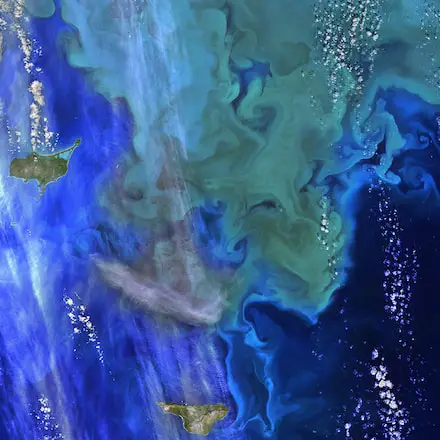Climate change is a global crisis with far-reaching consequences and one of the most vulnerable ecosystems affected by its rapid changes is the world’s oceans. Rising temperatures sea-level rise ocean acidification and extreme weather events are transforming marine ecosystems at an alarming rate. In this article we delve into the effects of climate change on our oceans and explore potential solutions to mitigate and adapt to these challenges.
Warming Seas and Coral Bleaching
One of the most visible impacts of climate change on marine ecosystems is the phenomenon known as coral bleaching. Warmer ocean temperatures stress coral reefs leading to the expulsion of symbiotic algae which results in the whitening and eventual death of coral colonies. This loss not only affects the stunning biodiversity of coral reefs but also disrupts the countless species that depend on them for food and shelter.
Ocean Acidification and Its Implications
As carbon dioxide levels rise in the atmosphere a significant portion is absorbed by the oceans leading to a process called ocean acidification. Increased acidity interferes with the ability of marine organisms such as shellfish and corals to build and maintain their protective structures. This has severe implications for the entire food chain affecting everything from microscopic plankton to large predators and ultimately impacting human populations that rely on seafood for sustenance and economic stability.
Altered Marine Ecosystems and Species Distribution
Climate change is causing shifts in the distribution and abundance of marine species. Some species are migrating to cooler waters in search of suitable habitats while others are struggling to adapt or facing increased competition for resources. Disruptions in these delicate ecological relationships can have cascading effects throughout the food web leading to imbalances and potential species extinctions.
Rising Sea Levels and Coastal Vulnerability
One of the most visible and immediate consequences of climate change is the rise in sea levels. As polar ice caps melt and ocean waters expand due to warming coastal communities face increased vulnerability to coastal erosion flooding and storm surges. The loss of valuable coastal habitats including mangroves and salt marshes also reduces natural defenses against these impacts and compromises the resilience of both marine and human communities.
Adapting to Climate Change: Resilience and Conservation
Addressing the challenges posed by climate change requires a multifaceted approach that combines mitigation and adaptation strategies. Some key pathways to build resilience in marine ecosystems and reduce the impacts of climate change include:
- Reducing greenhouse gas emissions: By transitioning to cleaner and more sustainable energy sources we can curb the warming of the planet and alleviate stress on marine ecosystems.
- Protecting and restoring habitats: Preserving critical coastal habitats like mangroves seagrass beds and salt marshes can provide natural buffers against sea-level rise and storms while also fostering biodiversity.
- Sustainable fisheries management: Implementing responsible fishing practices and science-based fisheries management helps maintain healthy fish populations and ecosystem resilience.
- Creating marine protected areas: Establishing protected areas can safeguard vulnerable marine habitats and species allowing them to adapt to changing conditions and recover from disturbances.
- Promoting ecosystem-based approaches: Taking an integrated approach that considers the interconnectedness of ecosystems can enhance their ability to cope with climate change impacts.
The Power of Collaboration and Education
Effectively addressing climate change and its impacts on the oceans requires global cooperation and widespread education. Governments non-governmental organizations communities and individuals must work together to implement sustainable practices support innovative solutions and advocate for policies that prioritize the protection and restoration of marine ecosystems. Education and awareness are also crucial in inspiring action encouraging sustainable choices and fostering a sense of stewardship for our oceans.
Embracing a Sustainable Future
Climate change poses an unprecedented challenge to the health and stability of our oceans and the countless species that call them home. By taking collective action promoting sustainable practices and prioritizing the conservation of marine ecosystems we can strive towards a future where the impacts of climate change on the oceans are minimized and the resilience of marine life is safeguarded.

Hi, I’m Jodie! I’m a spain-Moroccan writer with a passion for imagination, adventures, magic and stories with heart.
Please don’t hesitate to contact me for any questions, suggestions, comments or feedback.

















Add comment